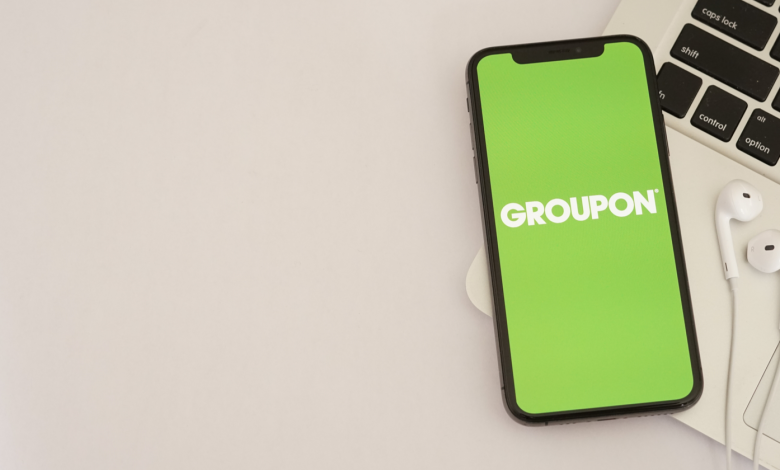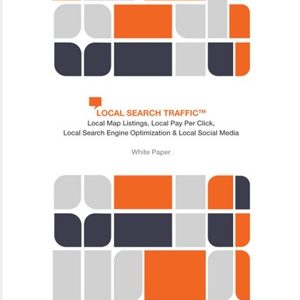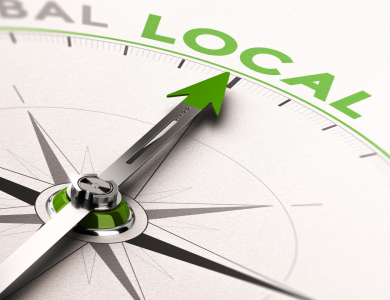
Working in sales at Groupon was my first full-time job after graduating from college.
My responsibilities revolved around building relationships with businesses that were considered to be a good fit for the Groupon marketplace.
After selling them on running a Groupon deal, it was also my responsibility to work with these businesses to structure the resulting campaign in a way that benefited Groupon, the customer, and the business.
The Ideal Groupon Deal Structure
Groupon works with merchants via a revenue share model.
The company collects all the money from customers buying a deal, then they distribute the merchant’s cut with scheduled payments throughout the life of a deal.
For this reason, Groupon salespeople can’t be considered telemarketers. They technically don’t collect money from the merchants they work with – just the customers who buy Groupon deals.
How much a business will make by working with Groupon starts with the sales price for the deal.
Groupon popularized the concept of offering deals with a 50% off sales price.
For customers, this creates a great situation where they can try out a business’s products and services at an otherwise unheard-of promotional price.
But where does this leave the merchant? And what’s Groupon’s take?
After giving the customer 50% off, Groupon typically splits the remaining money on the table – the sales price – 50/50.
The Most Popular Groupon Vertical: Food & Beverage
Let’s use Groupon’s first-ever deal, for The Motel Bar, to detail the financials behind a typical Groupon deal.
But first, a fun fact: Motel Bar, before it went out of business, operated in the same building (Chicago’s Montgomery Ward building) as Groupon. It was a popular after-work hangout for the sales team.
With a deal value of $26, a $13 sales price makes sense with Groupon’s policy of offering deals at 50% off.
Assuming a 50/50 split, $6.50 would go to the merchant and $6.50 would go to Groupon.
Groupon’s favorite deals to run are often related to food and beverage.
Food and beverage deals are the easiest to sell to customers and make the most money for the company.
Deciding on a sales price starts with a discussion about a customer’s average spend. For restaurant deals, this would likely involve a conversation about the average bill for two people.
Knowing that restaurants are already running at low margins, a salesperson could work with their manager to create a slightly better split.
It was often possible to get a 60/40 margin approved for a food and beverage deal (with 60% of the sales price going to the merchant).
For an especially popular restaurant, a 70/30 margin could be approved with sufficient evidence of the restaurant’s popularity.
Groupon sales reps had access to lead scoring metrics within their CRM that could help make this case.
If a particular business didn’t score high enough as a lead, sales reps couldn’t work with them – these businesses would have to use the self-service platform.
To further complicate things, sales reps sometimes structured food and beverage deals to be over the average bill total for two people to ensure that restaurants could make a certain amount of money from Groupon customers, assuming they wouldn’t go for an upsell.
Interestingly, large chain businesses or museums could strike deals with Groupon that resulted in no split going to Groupon. It was rumored internally that Groupon even paid these businesses for their participation in campaigns to activate new marketplace subscribers.
Other Popular Groupon Deal Categories
Although food and beverage deals are popular, it’s not the only successful category on the platform.
Other popular marketplace focuses include:
- Beauty & spas
- Health & fitness
- Activities
Since I worked at Groupon, this has expanded even further to include deals for online businesses and more retail offerings.
Other popular verticals, like Goods and Getaways, were managed by specialized sales teams, so I can’t speak to those specifics.
Getting the Most out of a Groupon Campaign
Groupon can be a good way to reach new customers and make use of unsold inventory. To get the most out of Groupon, I recommend:
- Talking to other local/similar businesses who have done a Groupon deal before talking to a Groupon sales rep so that you come into the process knowing what to expect.
- Researching your market for similar deal types to set expectations for deal structure and sales prices.
- Working with a Groupon sales rep instead of the self-service platform to ensure a win-win-win deal structure.
- Making sure that the revenue split covers your costs to provide a service (or product), even if it doesn’t result in a profit.
- Creating a strategy to upsell customers or incentivize them to come back ASAP to realize a small profit.
- Using the deal structure or fine print to protect full-margin sales.
Julia Spahiu of Haven Color Bar shares her experience setting up and tweaking a Groupon marketing campaign for her salon. Despite initially having no restrictions, she noted they had to adjust their terms as they gained popularity and the Groupon team was very cooperative in making those updates.
Groupon customers have a reputation for not tipping, but most do understand the businesses are taking a hit by offering a Groupon deal and act accordingly. It might still be worth reminding customers to tip where appropriate.
When I worked at Groupon, there was a tool that merchants could use to track actual spend by Groupon customers – I’d recommend using it to gauge the effectiveness of your campaign.
The Groupon Customer Experience
Here’s what Jake Lane of NuBrakes Mobile Brake Repair had to say about a Groupon marketing campaign his company put together:
"The Groupon deal creates friction between our ops team, technician, and customer when it comes time to pay for the job. Additionally, there is a bit of confusion when someone buys a voucher for one axle and we find out their other axle needs replacement too."
Taxes and tips were also not included in the cost of a Groupon, which could cause awkward situations.
The Pandemic Impact on Groupon Marketing
Christal McKinney of Massage Therapeutix shares her experience with Groupon in 2020. Due to policy changes during the quarantine period, concerns about revenue splits, and delayed payments, Christal, like many others, found the experience less than ideal.
Groupon’s Unsavory Business Practices
Two incidents during my tenure involved being asked to stay extra hours past our shifts due to a falling stock price, without overtime pay. This eventually led to a class-action lawsuit against Groupon.
Additionally, Groupon’s accounting practices involved counting revenue intended for merchants as their own, which gave a misleading impression to stockholders.
Final Thoughts: Is Groupon Marketing Worth it for Businesses?
With the right deal structure, marketing your business on Groupon can be beneficial. But with the wrong structure, it could be detrimental. Talk to local business owners who have been there, gather insight, and don’t let pushy sales tactics force you to compromise critical aspects of your business.
If you’ve run a deal on Groupon, I’d love to hear about your experience. Or, if you’ve worked at Groupon and want to add to my insights, please share.



